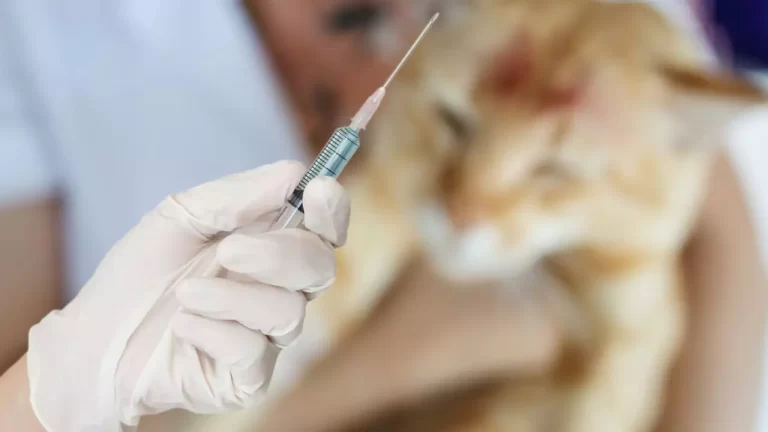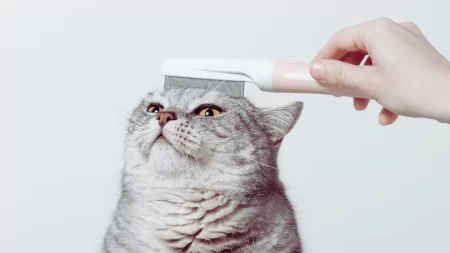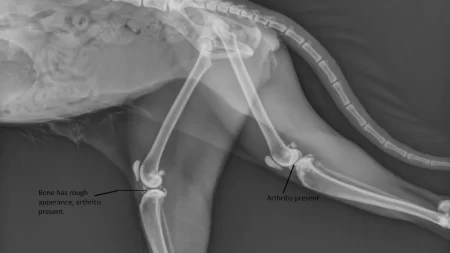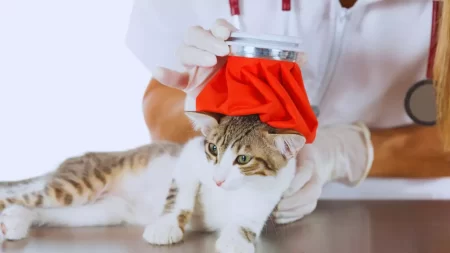It is very common for cats to sleep more than usual after getting vaccinations or shots from the veterinarian.
The vaccines stimulate the immune system, so it is normal for cats to experience some tiredness or lethargy afterwards as their body works to build immunity.
While the sleepiness is normal, pet owners should still monitor the cat for any signs of an adverse reaction.
With preparation and care before and after the vet visit, most cats handle the vaccines well and are protected from serious illnesses.
Normal Reactions for Cats After Getting Shots
Tiredness and Sleepiness
The most common reaction after a vet visit for shots is for the cat to sleep more or be less active. Since vaccines work by triggering an immune response, it makes sense that the cat may feel worn out or fatigued. Plan for your cat to sleep through the night and much of the next 24 hours after the appointment. The drowsiness indicates the cat’s body is working hard to build immunity against the vaccinated diseases. As long as the cat is sleeping peacefully and wakes up to eat and drink normally, the increased sleep is nothing to worry about.
Appetite Changes
It is also quite normal for your cat to show changes in appetite after shots. Some cats may turn up their nose at food or eat less than usual. Others may act very hungry and want frequent meals. These fluctuations in appetite should resolve within a day or two as your cat starts feeling normal again. Make sure fresh water is always available to keep your cat hydrated. Warm up wet food to increase the aroma and appeal if your cat is reluctant to eat. If appetite loss persists more than 2 days, contact your vet.
Soreness and Swelling at Injection Site
Your cat received one or more injections at the vet visit, likely in the hind legs or scruff. It is normal to feel small lumps under the skin where the vaccines were administered. There may be localized pain, swelling, or redness that resolves within a few days. Applying a warm compress to the sites can provide comfort. If swelling is increasing or the area is warm and your cat is in obvious discomfort, have your vet examine the injection site.
Fever
It is not unusual for cats to develop a low-grade fever within a day or two of shots. This indicates the cat’s immune system is responding. Temperatures between 100-102 degrees Fahrenheit are typical. Offering foods like chicken broth ice cubes can help bring the fever down. Call your vet if the fever climbs over 103 degrees or does not come down with treatment at home.
Allergic Reactions
Severe allergic reactions are rare after vaccines but can occur. Signs of a reaction include facial swelling, hives, difficulty breathing, vomiting, or pale gums. If your cat has any of these symptoms, especially trouble breathing, seek emergency vet care immediately. Vaccine reactions require medication like antihistamines or epinephrine. With prompt treatment, most cats will fully recover.
Preparing Your Cat for the Vet Visit
You can take steps before the appointment to help your cat feel less stressed at the vet clinic:
Getting Your Cat Used to Being Handled
Gently handle your cat’s legs, feet, ears, mouth, and tail each day. Get them comfortable with touch to make the exam easier. Give treats and praise during handling sessions.
Using a Carrier
Have your cat spend time in the carrier at home so it becomes a safe, familiar place. Feed meals in the open carrier. Take occasional short car rides.
Fasting Before the Visit
Follow your vet’s orders about restricting food and water before shots. Fasting prevents nausea and vomiting.
Trying Calming Aids
Use calming pheromones or treats with L-theanine before visits to reduce anxiety.
Scheduling Appointments for Early in the Day
Morning vet appointments are less chaotic and may stress your cat less.
Tips for a Less Stressful Vet Visit for Your Cat
Here are some tips for keeping your cat as comfortable as possible during the vet visit:
Arriving Early
Get to the clinic 10-15 minutes before your appointment to avoid rushing.
Communicating Concerns to the Vet
Inform staff of any sensitivities or fears your cat has so they can minimize anxiety triggers.
Requesting a Quiet Exam Room
Ask to wait in an exam room instead of the lobby if that is less stressful.
Taking Your Time
Don’t rush handling or visits with the vet. Give your cat time to acclimate at each step.
Providing Rewards after the Visit
Give favorite treats, playtime, or affection after the appointment to build positive associations.
What to Do if Your Cat Gets Sick After Shots?
If your cat has an unusual reaction after vaccines:
Providing Fluids
Use an oral syringe to administer water or broth if your cat is not drinking normally. Helps prevent dehydration.
Monitoring Appetite and Temperature
Track all food consumed and take temperature twice daily. This helps identify worrying changes.
Allowing Rest in a Quiet Place
Let your cat recover undisturbed in a comfortable, peaceful space. Reduce noise and activity.
Separating from Other Pets
Keep the unwell cat isolated in a spare room to prevent spreading illness to other animals.
Conclusion
It is normal for cats to experience some tiredness, soreness, and change in appetite after receiving vaccines. These effects indicate the shots are stimulating your cat’s immune system. While most cats bounce back within 48 hours, monitor your cat closely for any concerning symptoms. With preparation and supportive care before and after the visit, your cat can have a stress-free vet visit and stay healthy after being immunized.







